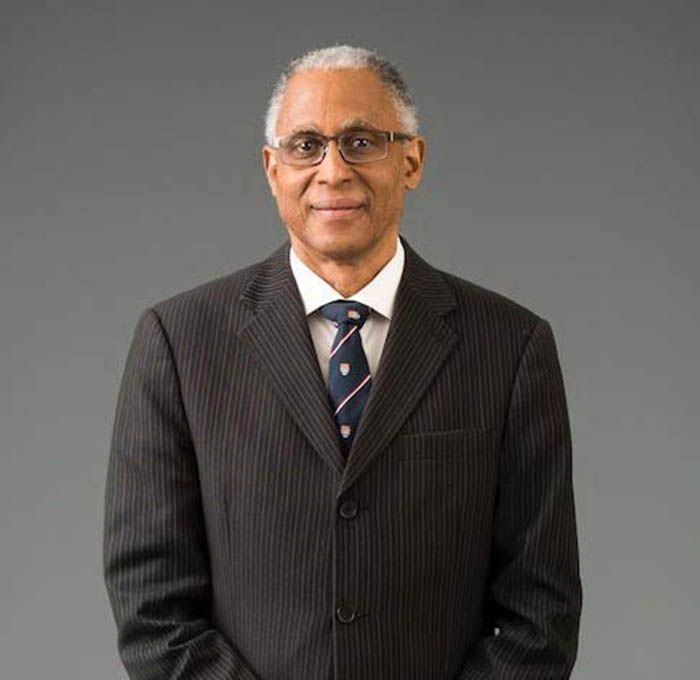“We shall always protect the rights of the people,” is what President of the Caribbean Court of Justice (CCJ), Justice Adrian Saunders said is the court’s “solemn promise” to the Region.
Justice Saunders was at the time delivering a message via YouTube to mark the commencement on Monday of the court’s 2021/2022 judicial year, which he said will see among other things the advancement of the rule of law and the legal framework underpinning the CARICOM Single Market and Economy (CSME).
Last year, the court played a pivotal role in helping to resolve the five-month impasse here over the results of the March 2nd, 2020 general elections.
The court’s resolve he said is, “As we adjudicate the rights of persons and member states of CARICOM, the CCJ’s solemn promise to the Region is this—we shall continue, fearlessly as always to advance the Rule of Law in the Region. We shall always protect the rights of the people and we shall strengthen the legal framework underpinning the CARICOM Single Market and Economy. We shall do our utmost to live up to our vision to be a model of judicial excellence.”
Providing an overview of the work of the court over the last year, the President said that notwithstanding the severe effects of the COVID-19 pandemic on countries, institutions and people in general, the court was able to function “effectively” using its digital machinery in the execution of its mandate in addition to managing and trying the cases brought before it.
Justice Saunders said, too, that progress was made on each of the six strategic areas which had been identified in its 2019 to 2024 strategic plan—these were—communication, independence and accountability, high performance environment, equality, fairness and integrity in promoting the rule of law; organizational capacity for caseload growth and enhanced regional system capacity and performance.
The judge said that despite the pandemic, over the last year also, the court’s virtual platform provided uninterrupted service to users—boasting some 55 virtual sittings—and one of the first ever in the court’s Original Jurisdiction which was initiated by one CARICOM member-state against a another.
The President said that this demonstrates the “growing level of confidence in the court’s role as an arbiter of disputes among CARICOM member-states.”
He said that over the period, the court also revised its judicial code of conduct and complemented that revision with a regulatory and enforceable framework.
Against this background, he said that a scheme for monitoring and evaluating progress in accomplishing the strategic plan was also done and as the executing agency for the Canadian-funded Judicial Reform and Institutional Strengthening (JURIST) project, the court also supported several justice delivery initiatives across the Region.
Some of the work he said, entailed engaging in a wide range of training initiatives for judges and court staff—and that through partnership with bodies such as the Caribbean Association of Judicial Officers (CAJO) the CCJ Academy for Law and the Global Judicial Integrity Network—a UN agency of which he is an advisory board member, Justice Saunders said that the court assisted in legal and judicial education programs—not just throughout the Region, but beyond.
While highlighting the strides made over the year, however, the court’s President said it recognizes that there is still more work to be done and so, over the next judicial year, “we will remain responsive and resilient. We shall continue to implement our strategic plan, paying particular regard to developing the mechanisms for more meaningful interactions with our stakeholders, whether through our website, or social media or by other means.”
“The CCJ is your court—the people of the Caribbean—and we believe that all citizens of CARICOM, must know how their court works and how what we do impacts on you,” Justice Saunders said.
Established in 2005, the judge said that the Court seeks to provide “accessible, fair and efficient justice” to the people and States of the Region. He opined that in establishing the court, “the leaders of the Caribbean Community were right to express their conviction that the court would have a determinative role in the further development of Caribbean jurisprudence.”
He said that the court is unique, because if functions as two courts in one—explaining that in its Original or Treaty Jurisdiction—it protects the rights of countries, businesses and citizens of CARICOM nations, since it’s the only court which has the authority to interpret and apply the Revised Treaty of Chaguaramas.
Justice Saunders said that member-states, businesses and individuals are entitled to approach the court to seek out their rights to freedom of movement, trade and services under the CSME.
The court also serves as the final Court of Appeal for those CARICOM States who wish to use it as such—currently those are—Barbados, Guyana, Dominica and Belize.





